Santiago Marco is the new vice-president of the International Society for Olfaction and Chemical Sensing
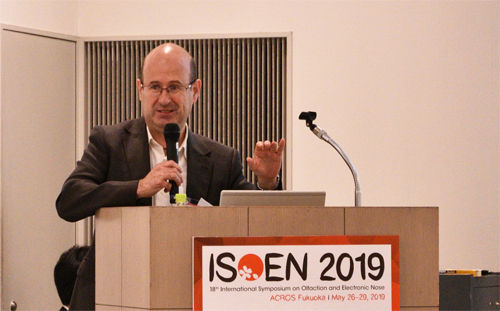 Santiago Marco, group leader of the Signal and information processing for sensing systems research group at IBEC has recently been appointed vice-president for the next two years of the International Society for Olfaction and Chemical Sensing (ISOCS) during the general assembly held at the International Symposium on Olfaction and Electronic Nose Conference (ISOEN) in ACROS, Fukuoka, Japan.
Santiago Marco, group leader of the Signal and information processing for sensing systems research group at IBEC has recently been appointed vice-president for the next two years of the International Society for Olfaction and Chemical Sensing (ISOCS) during the general assembly held at the International Symposium on Olfaction and Electronic Nose Conference (ISOEN) in ACROS, Fukuoka, Japan.
The ISOCS was launched in May 2008 by the Network of Excellence General Olfaction and Sensing Projects on a European Level (GOSPEL), the EU Network of Excellence in artificial olfaction, and Santiago Marco is one of its founding partners.

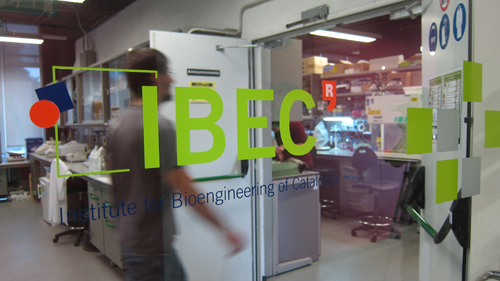
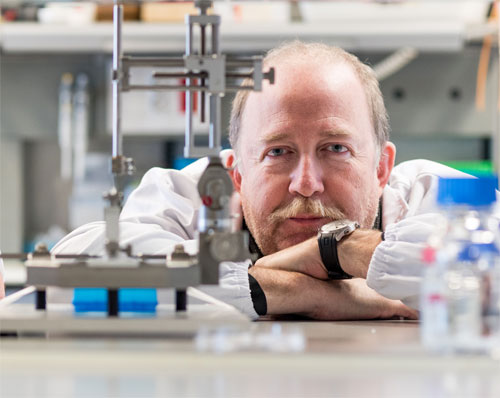
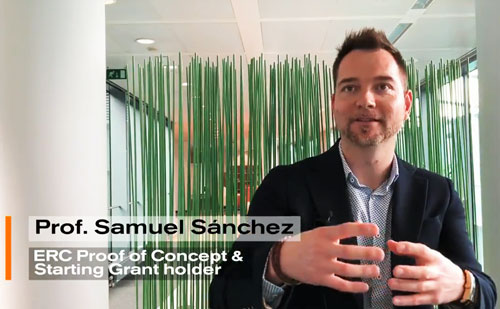
 Research Professor Samuel Sánchez presented last March 3rd in Brussels the new generation of NanoBots and BioBots developed in his research group at Institute of Bioengineering of Catalonia (IBEC) in Barcelona.
Research Professor Samuel Sánchez presented last March 3rd in Brussels the new generation of NanoBots and BioBots developed in his research group at Institute of Bioengineering of Catalonia (IBEC) in Barcelona. 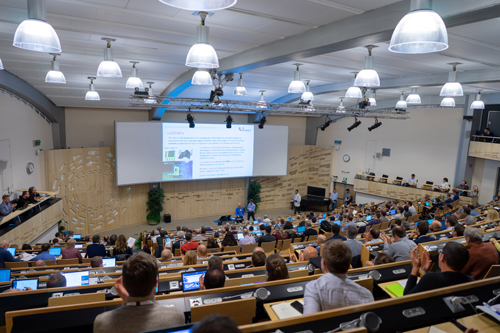
 Santiago Marco, group leader of the Signal and Information Processing for Sensing Systems and Samuel Ojosnegros, Head of Bioengineering in Reproductive Health and have been selected for their research projects in the ATTRACT programme. The call received more than 1200 projects and only 170 proposals were selected.
Santiago Marco, group leader of the Signal and Information Processing for Sensing Systems and Samuel Ojosnegros, Head of Bioengineering in Reproductive Health and have been selected for their research projects in the ATTRACT programme. The call received more than 1200 projects and only 170 proposals were selected.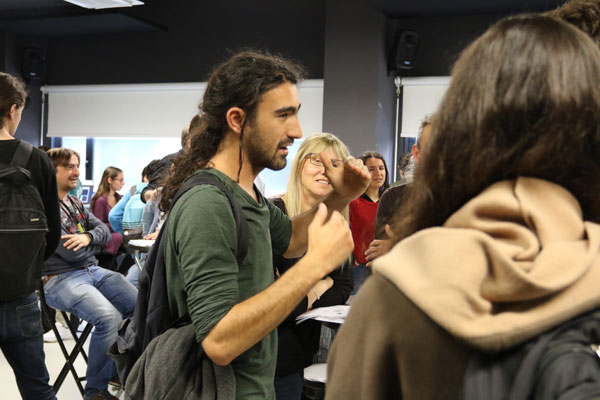
 More than fifty undergraduate and master students attended yesterday’s reSearch4Talent at IBEC, the fifth time we’ve opened our doors to young scholars interested in a scientific career.
More than fifty undergraduate and master students attended yesterday’s reSearch4Talent at IBEC, the fifth time we’ve opened our doors to young scholars interested in a scientific career.
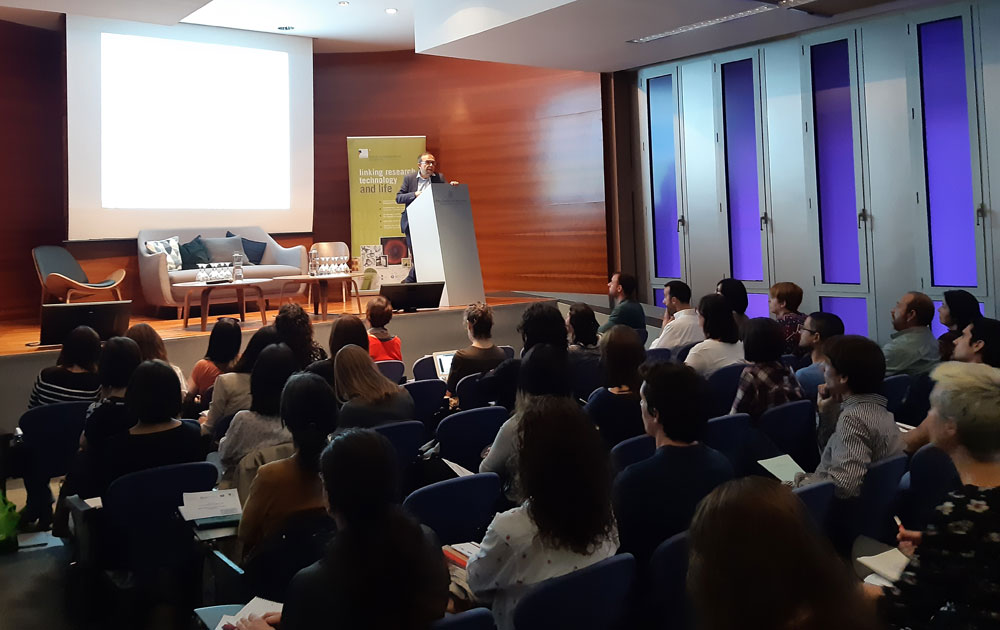
 The past 14 of May was held at the Barcelona Science Park (PCB) the informative session “Individual actions Marie Skłodowska-Curie (MSCA), call 2019 “.
The past 14 of May was held at the Barcelona Science Park (PCB) the informative session “Individual actions Marie Skłodowska-Curie (MSCA), call 2019 “.  El proyecto ISCHEMSURG, que persigue combatir la isquemia asociada a la cirugía regenerativa, ha recibido financiación de la Agencia de Gestión de Ayudas Universitarias y de Investigación (AGAUR) destinados a la obtención de prototipos y a la valorización i transferencia de resultados de investigación.
El proyecto ISCHEMSURG, que persigue combatir la isquemia asociada a la cirugía regenerativa, ha recibido financiación de la Agencia de Gestión de Ayudas Universitarias y de Investigación (AGAUR) destinados a la obtención de prototipos y a la valorización i transferencia de resultados de investigación.